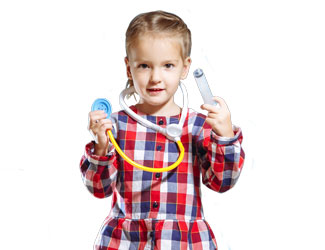Leukemia is a cancer of the bone marrow, the substance inside bones that makes blood cells. Most often, leukemia affects the white blood cells that help fight infection, but it can affect red blood cells that carry oxygen, and platelets that help with blood clotting.
The most common types of leukemia in children include:
- Acute lymphocytic leukemia (ALL)
- Acute myeloid leukemia (AML)
Duke Children’s pediatric cancer doctors have the skills and expertise to treat all types of childhood leukemia, each of which requires a different treatment approach. We use blood tests and a bone marrow exam to identify what type of leukemia is affecting your child and whether it’s related to a genetic change. We also take a sample of spinal fluid to determine whether leukemia cells are in the central nervous system. This comprehensive evaluation allows us to design and personalize a treatment plan that offers your child the best possible results while minimizing the risk of long-term side effects. We will also work with you to create a follow-up plan for long-term health monitoring.


